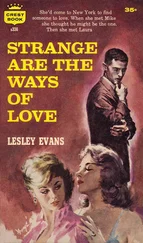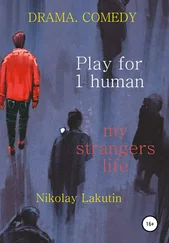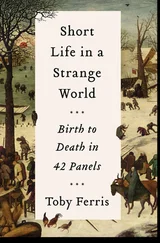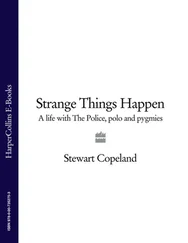Douglas Hofstadter - I Am a Strange Loop
Здесь есть возможность читать онлайн «Douglas Hofstadter - I Am a Strange Loop» весь текст электронной книги совершенно бесплатно (целиком полную версию без сокращений). В некоторых случаях можно слушать аудио, скачать через торрент в формате fb2 и присутствует краткое содержание. Жанр: Прочая документальная литература, на английском языке. Описание произведения, (предисловие) а так же отзывы посетителей доступны на портале библиотеки ЛибКат.
- Название:I Am a Strange Loop
- Автор:
- Жанр:
- Год:неизвестен
- ISBN:нет данных
- Рейтинг книги:4 / 5. Голосов: 1
-
Избранное:Добавить в избранное
- Отзывы:
-
Ваша оценка:
- 80
- 1
- 2
- 3
- 4
- 5
I Am a Strange Loop: краткое содержание, описание и аннотация
Предлагаем к чтению аннотацию, описание, краткое содержание или предисловие (зависит от того, что написал сам автор книги «I Am a Strange Loop»). Если вы не нашли необходимую информацию о книге — напишите в комментариях, мы постараемся отыскать её.
I Am a Strange Loop — читать онлайн бесплатно полную книгу (весь текст) целиком
Ниже представлен текст книги, разбитый по страницам. Система сохранения места последней прочитанной страницы, позволяет с удобством читать онлайн бесплатно книгу «I Am a Strange Loop», без необходимости каждый раз заново искать на чём Вы остановились. Поставьте закладку, и сможете в любой момент перейти на страницу, на которой закончили чтение.
Интервал:
Закладка:
The Inverted Political Spectrum
This hypothetical notion makes our inner experiences of the colors in the rainbow sound like a set of floating pre-existent pure abstractions that are not intimately (in fact, not at all) related to the physics outside our skull, or even to any physics inside it; rather, these inner experiences are arbitrarily mappable onto outside phenomena. As we grow up, the rainbow colors get mapped onto the spectrum of prefabricated feelings with which our brains all come equipped “from the factory”, but this mapping is not mediated by neural wiring; after all, neural wiring is observable from a detached third-person perspective, such as that of a neurosurgeon, so that rules it out.
Let’s now ponder the implications of this notion of the independence of subjective feelings and external stimuli. Maybe, just to pick a random example, the abstraction of “liberty” feels to me like what the abstraction of “imprisonment” feels like to you — it’s just that we both use the same word “liberty” for it, and so we are deluded into thinking that it is the same experience for both of us. This sounds pretty unlikely, doesn’t it? After all, liberty is pleasant whereas imprisonment is unpleasant. But then again, who can say for sure? Maybe experiences that I feel are pleasurable are unpleasurable for you, and vice versa.
Or maybe that churning feeling that I feel inside me when I run into right-wing flag-wavers and pro-lifers (those who dominated in the “red” states in the 2004 election) is identical to that churning feeling that you feel inside you when you encounter left-wing flag-burners and pro-choicers (those who dominated in the “blue” states in the 2004 election), and vice versa! This would be the inverted political spectrum! Are you getting a bit dizzy at this point? (Perhaps what you experience as dizziness I experience as clarity, and vice versa. But let’s not go there.)
The philosophers who take the inverted visual spectrum with total seriousness would not take the inverted political spectrum in the least seriously. But why not? Presumably because they don’t think our brains come from the factory with prefabricated political “feelings” inside them, feelings that can be arbitrarily attached to right-wing or left-wing politics as we grow up. And yet they truly do think that we come with knurking and glebbing built in (although they don’t use my words).
I once again wish to remind you that knurking is not an identifiable physical phenomenon in a brain (nor is glebbing). Knurking is that inherently incommunicable sensation that you supposedly have when red light (or blue light, if you’re French, reader) hits your eyes. French people have all the same internal physical events happen in their brains as we do, but they don’t have the same experiences as ours. French people experience glebbing when red light hits their retina, and knurking when blue light hits it. So just what is this knurking “experience”, then, if it isn’t anything physically identifiable in a brain?
The inverted-spectrists say it is pure feeling. Since this distinction is completely independent of physics, it amounts to dualism (something we already knew, in effect, since belief in Cartesian Egos is a kind of dualism).
Violets Are Red, Roses Are Blue
Why is it that those who postulate the inverted spectrum always do so only for experiences that lie along a one-dimensional numerical scale? It seems like a great paucity of imagination to limit oneself to swapping red and blue. If you think it’s coherent to say to someone else, “Maybe your private inner experience of red is the same as my private inner experience of blue”, then why would it not be just as coherent to say, “Maybe your private inner experience of looking at a red rose is the same as my private inner experience of looking at a blue violet”?
What is sacrosanct about the idea of shuffling colors inside a spectrum? Why not shuffle all sorts of experiences arbitrarily? Maybe your private inner experience of redness is the same as my private inner experience of hearing very low notes on a piano. Or maybe your private inner experience of going to a baseball game is the same as my private inner experience of going to a football game. Then again, maybe your private inner experience of going to a baseball game is the same as my private inner experience of going on a roller-coaster ride. Or maybe it’s the same as my private inner experience of wrapping Christmas presents.
I hope that these sound ridiculously incoherent to you, and that you can move step by step backwards from these variations on the inverted-spectrum theme to the original inverted-spectrum riddle without losing the sense of ridiculousness. That would be most gratifying to me, because I see no fundamental difference between the original riddle and the patently silly caricatures of it just offered.
A Scarlet Sardine
The inverted-spectrum riddle depends on the idea that we are all born with a range of certain “pure experiences” that have no physical basis but that can get attached, as we grow, to certain external stimuli, and thus specific experiences and specific stimuli get married and from then on they are intimately tied together for a lifetime. But these “pure experiences” are supposedly not physical states of the brain. They are, rather, subjective feelings that one simply “has”, without there being any physical explanation for them. Your brain state and mine could look as identical as anyone could ever imagine (using ultra-fine-grained brain-scanning devices), but whereas I would be feeling blueness, you would be feeling redness.
The inverted-spectrum fairy tale is a feeble mixture of bravado and timidity. While it boldly denies the physical world’s relevance to what we feel inside, it meekly limits itself to a one-dimensional spectrum, and to the electromagnetic one, to boot. The sonic spectrum is too tied to objective physical events like shaking and vibrating for us to imagine it as being inverted, and if one tries to carry the idea beyond the realm of one-dimensional spectra, it becomes far too absurd to give any credence to.
Yes, People Want Things
There’s something else in the philosophical literature on consciousness that gives me the willies, and that is the so-called “problem of free will”. Let me describe this second sacred cow, and then try to dispatch it, too, as quickly as possible. (It, too, suffers from sacred mad cow disease.)
When people decide to do something, they often say, “I did it of my own free will.” I think what they mean by this is usually, in essence, “I did it because I wanted to, not because someone else forced me to do it.” Although I am uncomfortable with the phrase “I did it of my own free will”, the paraphrase I’ve suggested sounds completely unobjectionable to me. We do indeed have wants, and our wants do indeed cause us to do things (at least to the extent that 641’s primeness can cause a domino in a domino chain to fall).
The Hedge Maze of Life
Sometimes our desires bang up against obstacles. Somebody else drank that last soft drink in the refrigerator; the formerly all-night grocery store now closes at midnight; my friend’s car has a flat tire; the dog ate my homework; the plane just pulled out of the gate thirty seconds ago; the flight has been canceled because of a snowstorm in Saskatoon; we’re having computer troubles and we can’t seem to make PowerPoint work in here; I left my wallet in my other pair of pants; you misread the final deadline; the reviewer was someone who hates us; she didn’t hear about the job until too late; the runner in the next lane is faster than I am; and so on and so forth.
Читать дальшеИнтервал:
Закладка:
Похожие книги на «I Am a Strange Loop»
Представляем Вашему вниманию похожие книги на «I Am a Strange Loop» списком для выбора. Мы отобрали схожую по названию и смыслу литературу в надежде предоставить читателям больше вариантов отыскать новые, интересные, ещё непрочитанные произведения.
Обсуждение, отзывы о книге «I Am a Strange Loop» и просто собственные мнения читателей. Оставьте ваши комментарии, напишите, что Вы думаете о произведении, его смысле или главных героях. Укажите что конкретно понравилось, а что нет, и почему Вы так считаете.












